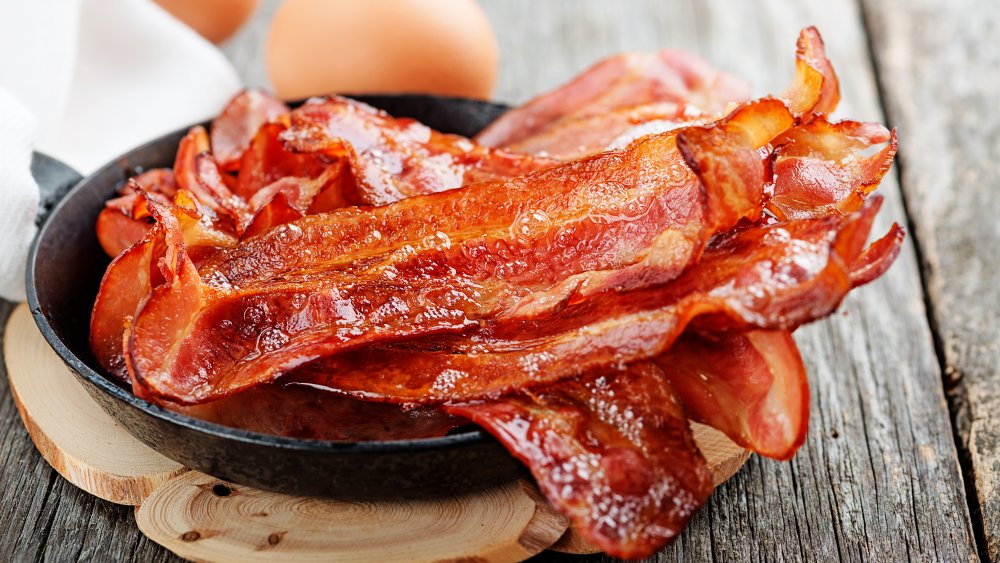The Real Reason People Started Eating Bacon For Breakfast
Whether eaten on an egg-and-cheese sandwich or served with a side of pancakes, bacon for breakfast is as American as apple pie for dessert. This wasn't always the case. Favored by early Americans as a breakfast go-to, bacon's consumption diminished following the Industrial Revolution. The Washington Post reports families turned to newly introduced packaged cereals and simpler fare, like toast and juice – and bacon sales suffered.
In our current era of "bacon mania" – with bacon being incorporated into lollipops, cupcakes, and even lip balm – it's hard to believe that bacon sales were ever in jeopardy (via Time). Today, the average American eats 18 pounds of bacon per year, according to the Foundation for Economic Education. In 2018, an astonishing $4.9 billion dollars worth of bacon sold in the U.S. These soaring sales can be attributed, in part, to marketing genius Edward Bernays.
The nephew of renowned psychologist Sigmund Freud, Bernays was hired by the Beech-Nut Packing Company as a public relations consultant in the 1920s (via Eater). Bernays' claims to fame include breaking the taboo of women smoking in public with his Lucky Strike's "torches of freedom" campaign (via Journalism History) and notoriously helping to overthrow the democratically elected president of Guatemala with a propaganda campaign for United Fruit Company (now Chiquita) (via How Stuff Works). Tasked with selling more bacon, Bernays employed Freud's theories to increase the appeal of bacon as a breakfast food.
Doctors ordered bacon for breakfast
Bernays enlisted the help of doctors to back up his marketing campaign. According to Eater, Beech-nut Packing Company's internal physician stated that a heavier breakfast, like bacon and eggs, would be healthier to consume than a light breakfast "because the body loses energy during the night and needs it during the day."
The doctor, at the request of Bernays, sent a letter to 5,000 physicians asking whether or not they reached the same conclusion about big breakfasts. About 4,500 doctors agreed. In archival video footage posted by The Washington Post, Bernays said, "Many of them stated that bacon and eggs should be embodied with the breakfast, and as a result, the sale of bacon went up." (via the Food Network).
Bacon sales are still benefiting from positive PR. Time credits online media with contributing to America's love of bacon. "Posts about bacon were pretty much guaranteed to attract eyeballs," said Kim Bhasin, a former editor at Business Insider. Of course, it helps that bacon is delicious.

